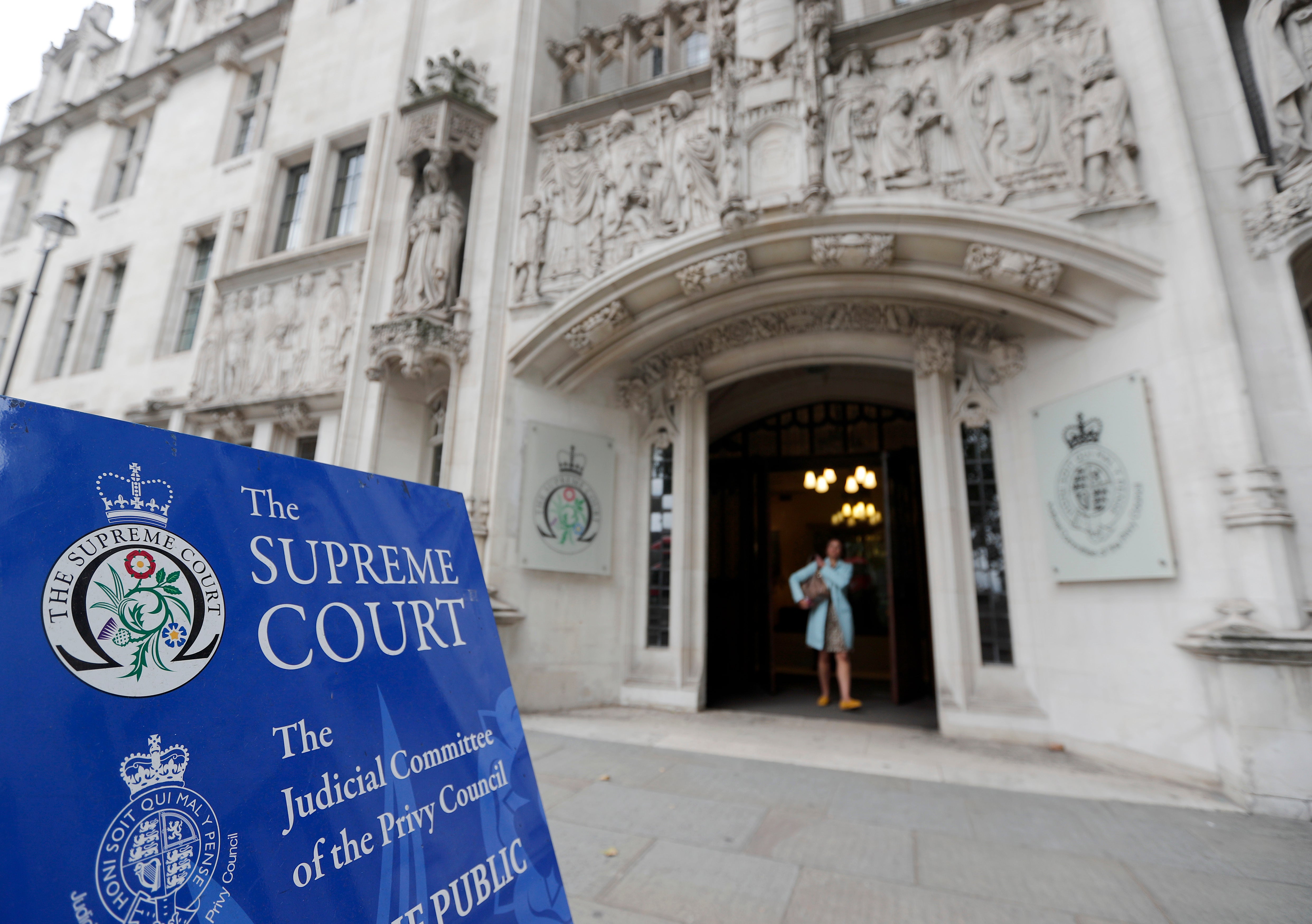UK Supreme Court hears landmark legal challenge over how a 'woman' is defined in law
The U.K. Supreme Court has begun hearing a legal challenge focusing on the definition of “woman” in a long-running dispute between a women’s right campaign group and the Scottish government

Your support helps us to tell the story
From reproductive rights to climate change to Big Tech, The Independent is on the ground when the story is developing. Whether it's investigating the financials of Elon Musk's pro-Trump PAC or producing our latest documentary, 'The A Word', which shines a light on the American women fighting for reproductive rights, we know how important it is to parse out the facts from the messaging.
At such a critical moment in US history, we need reporters on the ground. Your donation allows us to keep sending journalists to speak to both sides of the story.
The Independent is trusted by Americans across the entire political spectrum. And unlike many other quality news outlets, we choose not to lock Americans out of our reporting and analysis with paywalls. We believe quality journalism should be available to everyone, paid for by those who can afford it.
Your support makes all the difference.The U.K. Supreme Court on Tuesday began hearing a legal challenge focusing on the definition of “woman” in a long-running dispute between a women’s rights campaign group and the Scottish government.
Five judges at Britain's highest court were considering the case, which seeks to clarify whether a transgender person with a gender recognition certificate that recognizes them as female can be regarded as a woman under equality laws.
While the case centers on Scottish laws, the campaign group bringing the challenge, For Women Scotland (FWS), has said its outcomes could have U.K.-wide consequences for sex-based rights as well as everyday single-sex services such as toilets and hospital wards.
What's the case about?
The case stems from a 2018 law passed by the Scottish Parliament stating that there should be a 50% female representation on the boards of Scottish public bodies. That law included transgender women in its definition of women.
The women's rights group successfully challenged that law, arguing that its redefinition of “woman” went beyond parliament's powers.
Scottish officials then issued guidance stating that the definition of “woman” included a transgender woman who has a gender recognition certificate.
FWS is seeking to overturn that.
“Not tying the definition of sex to its ordinary meaning means that public boards could conceivably comprise of 50% men, and 50% men with certificates, yet still lawfully meet the targets for female representation," the group’s director Trina Budge said.
The challenge was rejected by a court in 2022, but the group was granted permission last year to take its case to the Supreme Court.
What are the arguments?
Aidan O’Neill, a lawyer acting for FWS, told the Supreme Court judges — three men and two women — that under the Equality Act “sex” should refer to biological sex and as understood “in ordinary, everyday language.”
“Our position is your sex, whether you are a man or a woman or a girl or a boy is determined from conception in utero, even before one’s birth, by one’s body,” he said on Tuesday. "It is an expression of one’s bodily reality. It is an immutable biological state.”
The women's right group counts among its supporters author J.K. Rowling, who reportedly donated tens of thousands of pounds to back its work. The “Harry Potter” writer has been vocal in arguing that the rights for trans women should not come at the expense of those who are born biologically female.
Opponents, including Amnesty International, say barring transgender people who hold a gender recognition certificate from protections against sex discrimination conflicts with human rights principles.
Amnesty submitted a written intervention to the court, saying it was concerned about the deterioration of the rights for trans people in the U.K. and abroad.
“A blanket policy of barring trans women from single-sex services is not a proportionate means to achieve a legitimate aim,” the human rights group said.
The appeal hearing is expected to last two days with a judgement expected at a later date.